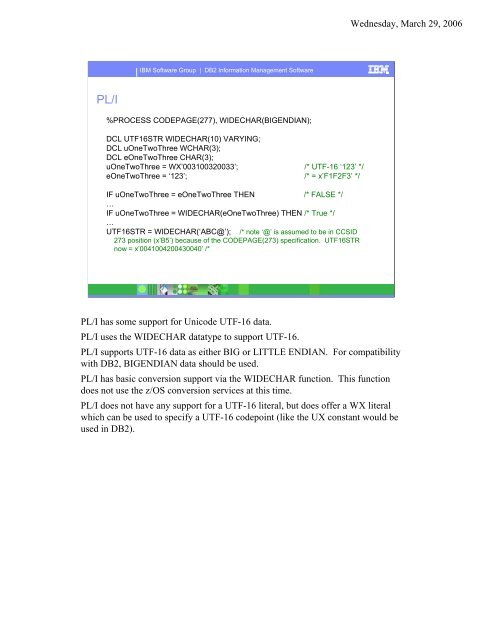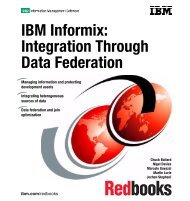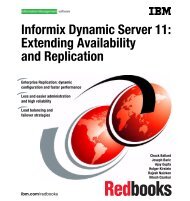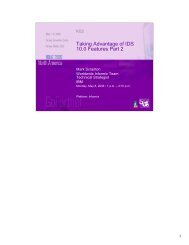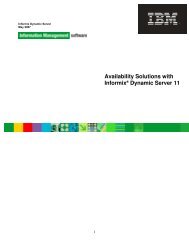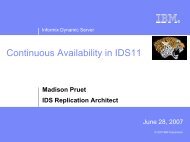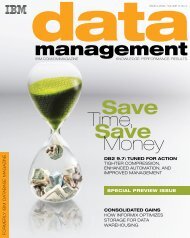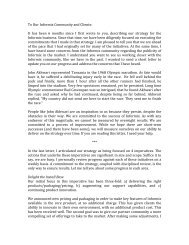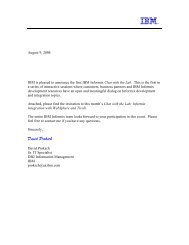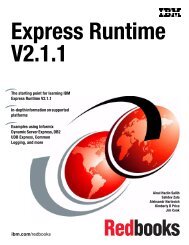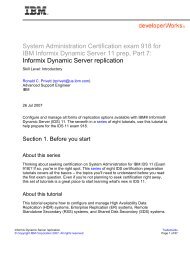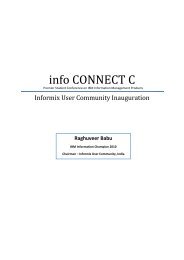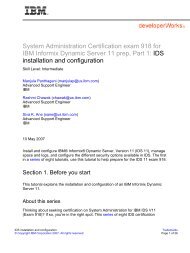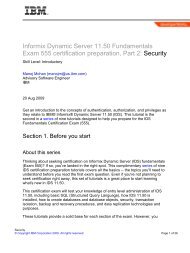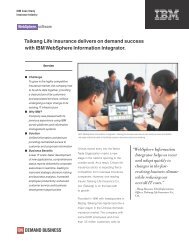CCSID 102 â What's a CCSID and why do I care?
CCSID 102 â What's a CCSID and why do I care?
CCSID 102 â What's a CCSID and why do I care?
Create successful ePaper yourself
Turn your PDF publications into a flip-book with our unique Google optimized e-Paper software.
Wednesday, March 29, 2006<br />
IBM Software Group | DB2 Information Management Software<br />
PL/I<br />
%PROCESS CODEPAGE(277), WIDECHAR(BIGENDIAN);<br />
DCL UTF16STR WIDECHAR(10) VARYING;<br />
DCL uOneTwoThree WCHAR(3);<br />
DCL eOneTwoThree CHAR(3);<br />
uOneTwoThree = WX’003100320033’; /* UTF-16 ‘123’ */<br />
eOneTwoThree = ‘123’; /* = x’F1F2F3’ */<br />
IF uOneTwoThree = eOneTwoThree THEN /* FALSE */<br />
…<br />
IF uOneTwoThree = WIDECHAR(eOneTwoThree) THEN /* True */<br />
…<br />
UTF16STR = WIDECHAR(‘ABC@’); /* note ‘@’ is assumed to be in <strong>CCSID</strong><br />
273 position (x’B5’) because of the CODEPAGE(273) specification. UTF16STR<br />
now = x’0041004200430040’ /*<br />
PL/I has some support for Unicode UTF-16 data.<br />
PL/I uses the WIDECHAR datatype to support UTF-16.<br />
PL/I supports UTF-16 data as either BIG or LITTLE ENDIAN. For compatibility<br />
with DB2, BIGENDIAN data should be used.<br />
PL/I has basic conversion support via the WIDECHAR function. This function<br />
<strong>do</strong>es not use the z/OS conversion services at this time.<br />
PL/I <strong>do</strong>es not have any support for a UTF-16 literal, but <strong>do</strong>es offer a WX literal<br />
which can be used to specify a UTF-16 codepoint (like the UX constant would be<br />
used in DB2).


